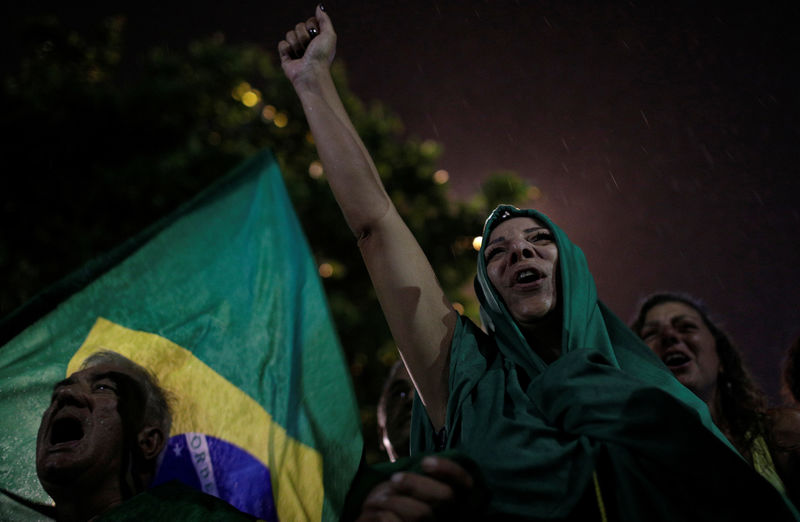(Bloomberg) -- The Brazilian government is pushing back against mounting national and international pressure over its environmental policies as a record number of fires rip through the Amazon (NASDAQ:AMZN) rain forest.
Environment Minister Ricardo Salles announced the creation of an Amazon task force in an interview with local news website UOL, while President Jair Bolsonaro’s senior foreign policy adviser tweeted a long English language thread defending Brazil’s record on Amazon deforestation and attacking media coverage. Meanwhile, house Speaker Rodrigo Maia said congress will set up a panel to study the fires.
Data from the National Institute of Space Research showed an 84% year-on-year increase in forest fires in 2019, many caused by loggers incentivized by the government’s disdain for environmental oversight. While Bolsonaro relishes criticism of his attitude toward the Amazon -- jokingly referring to himself as ‘Captain Chainsaw’ -- his supporters in the agricultural sector fear a backlash from consumers both in Brazil and abroad.
Germany and Norway have already suspended their contributions to a rain forest preservation fund, and polls indicate that even among Bolsonaro’s own voters there is overwhelming support for stronger measures to combat illegal deforestation.
“In terms of environmental management we’re witnessing a disaster,” Jairo Nicolau, a political science professor at the Federal University of Rio de Janeiro, said. “It’s not about just a different policy. We’re seeing total disorganization in an area in which there was a culture of continuity from one government to the next.“
Points of Concern
Salles’ decision to create an Amazon task force, comprising police, armed forces, indigenous, farming and mining groups represents a change in tack from the confrontational attitude he has taken to previous criticism of environmental policy. The announcement came the same day as a Brazilian Senator asked the Supreme Court to remove him from his position for failing to fulfil his duties.
Maia was clear in explaining the reasons behind his decision to establish a congressional committee to investigate the fires. “It is important to keep our agribusiness exports strong and to preserve the environment,” he wrote.
Senior figures in Brazil’s agricultural sector have warned the president of the potential economic repercussions of his policies, though so far Bolsonaro himself has shown little sign of paying heed. One of the key concerns is the possible impact on the recent trade deal agreed between the European Union and the South American customs union, Mercosur.
“The Mercosur-EU deal hasn’t been ratified yet and there are requirements in it about sustainability and the protection of the indigenous, for example,” Renata Amaral, director of international trade at the Barral MJorge consultancy, said. “The Bolsonaro government could start to see setbacks in the area he cherishes the most.”
’Spreading Lies’
On Thursday morning, a day after he had baselessly accused foreign NGOs of lighting fires to discredit his government, Bolsonaro instructed his Twitter followers to read a thread by his adviser, Felipe Martins.
In the 11-part post, Martins criticized the mainstream media’s “irresponsible disregard for basic data” and stated that over 60% of Brazil is covered by native vegetation, while only 29% is used for agriculture. Martins also wrote that Brazil has some of the most stringent environmental legislation in the world and has a larger share of territory under environmental protection than any other country worldwide. He adds that there is a “clear long-term, downward trend” in deforestation.
While the percentages of land used for agriculture and covered in vegetation Martins cites are roughly true, World Bank data show that there are at least 20 counties that maintain more forest as a proportion of their territory than Brazil, including Japan, Sweden and the Congo.
The statement’s omissions are also significant. Brazil is the country that deforests at a faster rate than any other, according to the research NGO World Resouces Institute.
